Flexibility vs Pliability
Posted by Paul Zaichik on
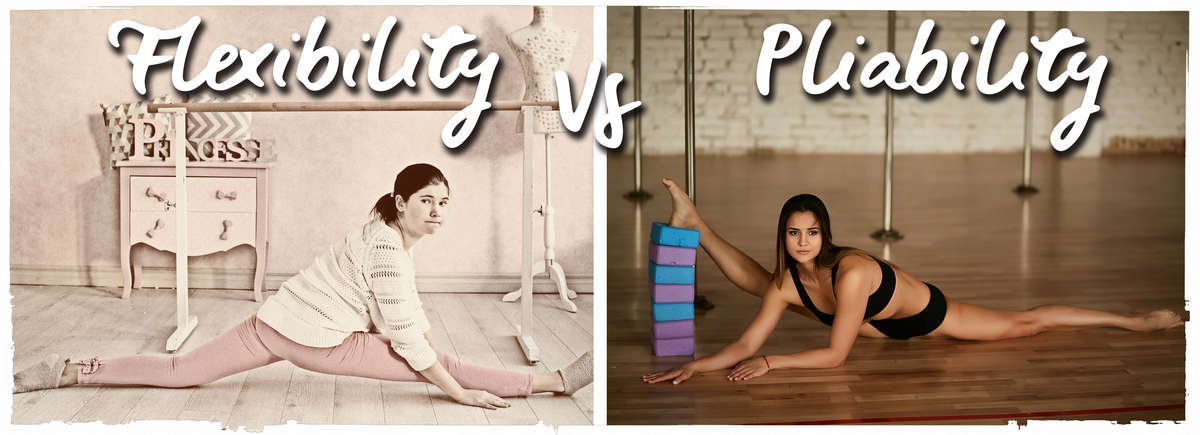
Could you be thinking that you are lacking flexibility, but have been lacking pliability all along? Well, what is the difference? What is really stopping your stretching progress and performance?
In short, Flexibility to Speed is Pliability to Acceleration. The former measures how flexible you are at any given time, the later measures how fast you become flexible.
Can two people have the same flexibility, but different pliability?
You betcha! If two people can't do a split when cold, but can do a split when warm, they both have the same flexibility. (Assuming they start at the same number of degrees and end at the same number, 180°). However, if takes one 5 minutes and the other 10 minutes to get that full split, the faster person is more pliable.
There are many advantages to pliability!
There are many advantages to pliability. In the video below we lists some of them, as well as summarize the concept. Just keep in mind all other factors being equal, the more pliable athlete always has an advantage!
If you want to become flexible and teach others to do the same with a proven scientific method that works fast, is safe and easy you can get certified to teach the Zaichik Stretching Techniques! For more information please read below.
If you are NOT looking to get certified but want to get super flexible you can take any of our online on demand training programs. Click here to take our Goals Quiz that will help find the right program for you. Or you can reach out to us LIVE on chat and we'll help find a program that will take your skills to a level you've only dreamed of!
If you are NOT looking to get certified but want to get super flexible you can take any of our online on demand training programs. Click here to take our Goals Quiz that will help find the right program for you. Or you can reach out to us LIVE on chat and we'll help find a program that will take your skills to a level you've only dreamed of!
Get your EasyFlexibility Training Certification and gain access to a full and detailed Kinesiological explanation for every muscle in the human body. All of our Zaichik Stretching Techniques are specific to individual muscles, focusing on their primary actions.
This certification training is applicable to any sport or physical activity with lessons arranged along the basic positions commonly used to group muscle actions, thus the lessons are divided into exercises to improve:
- Back bending.
- Forward bending.
- Lateral bending.
- Overhead arm movement (shoulder flexion).
- Shoulder and wrist extension.
Get the Special Discount!!! SAVE 50%!!!! + GET 2 FREE PROGRAMS OF YOUR CHOICE!
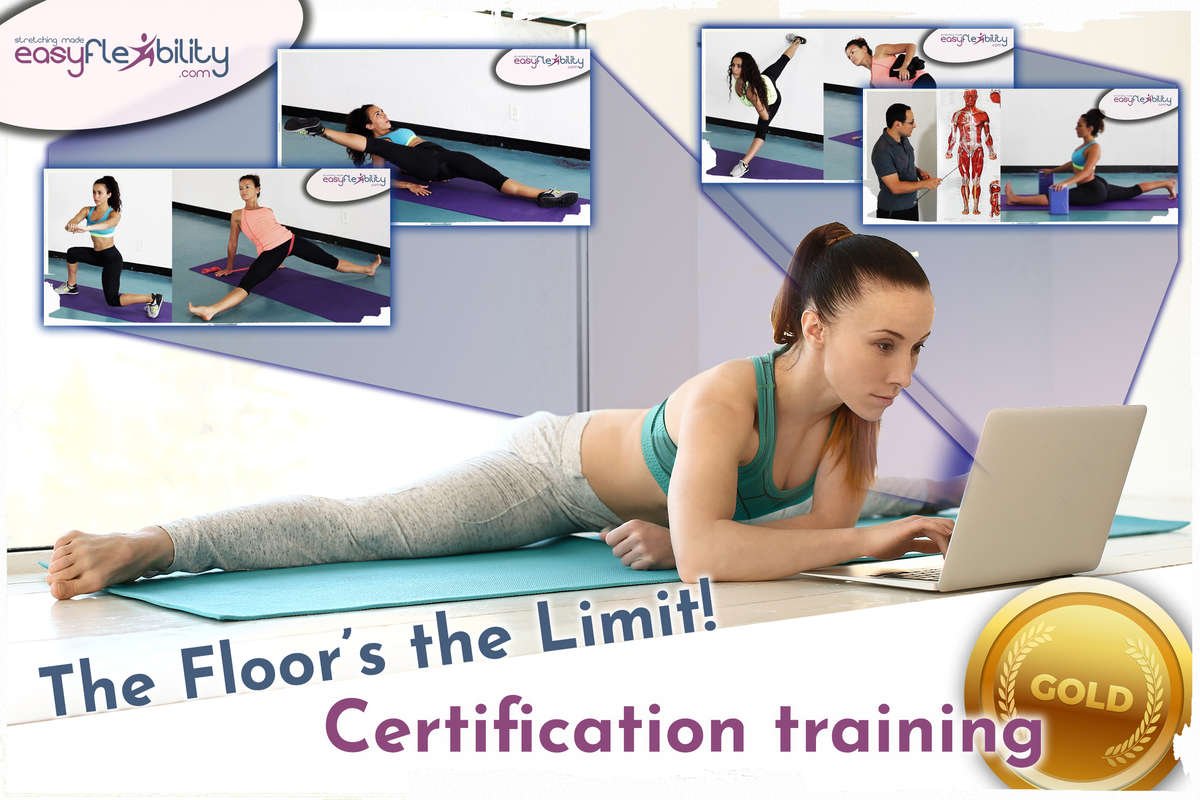
GET CERTIFIED AS AN EASYFLEXIBILITY INSTRUCTOR!With our certifications you will be able to:- Teach at home!
- Do one-on-one training sessions
- Do group classes
- Teach at your studio
- The possibilities are endless!
THIS CERTIFICATION COURSE INCLUDES THE FOLLOWING:
- Detailed instructions on how to teach, what to do, what not to do, how to properly put together training sessions.
- FREE PROGRAMS of your choice: Your choice of digital videos is an added bonus to obtaining this certifications. It allows for a better idea of how Zaichik Stretching Techniques are combined to form specific routines.
- Access to a Private Support Forum: Believe it or not – this is one of the most important elements of a program as it forms the right attitude towards the program. Upon registration for the course you gain an access to the private support forum, where you have a 24-hour active community to share your experience with, ask questions and seek advice.
- Getting promoted for free on our social media (more than 250 thousand followers).
- Listing in our private directory of EasyFlexibility Certified Instructors which allow you to be put on a list to be connected with potential clients that reach out to us.
- Access to our STRETCH180 APP's features for Instructors only to help with student retention.
In this Easy Flexibility Training Certification Course you will learn:
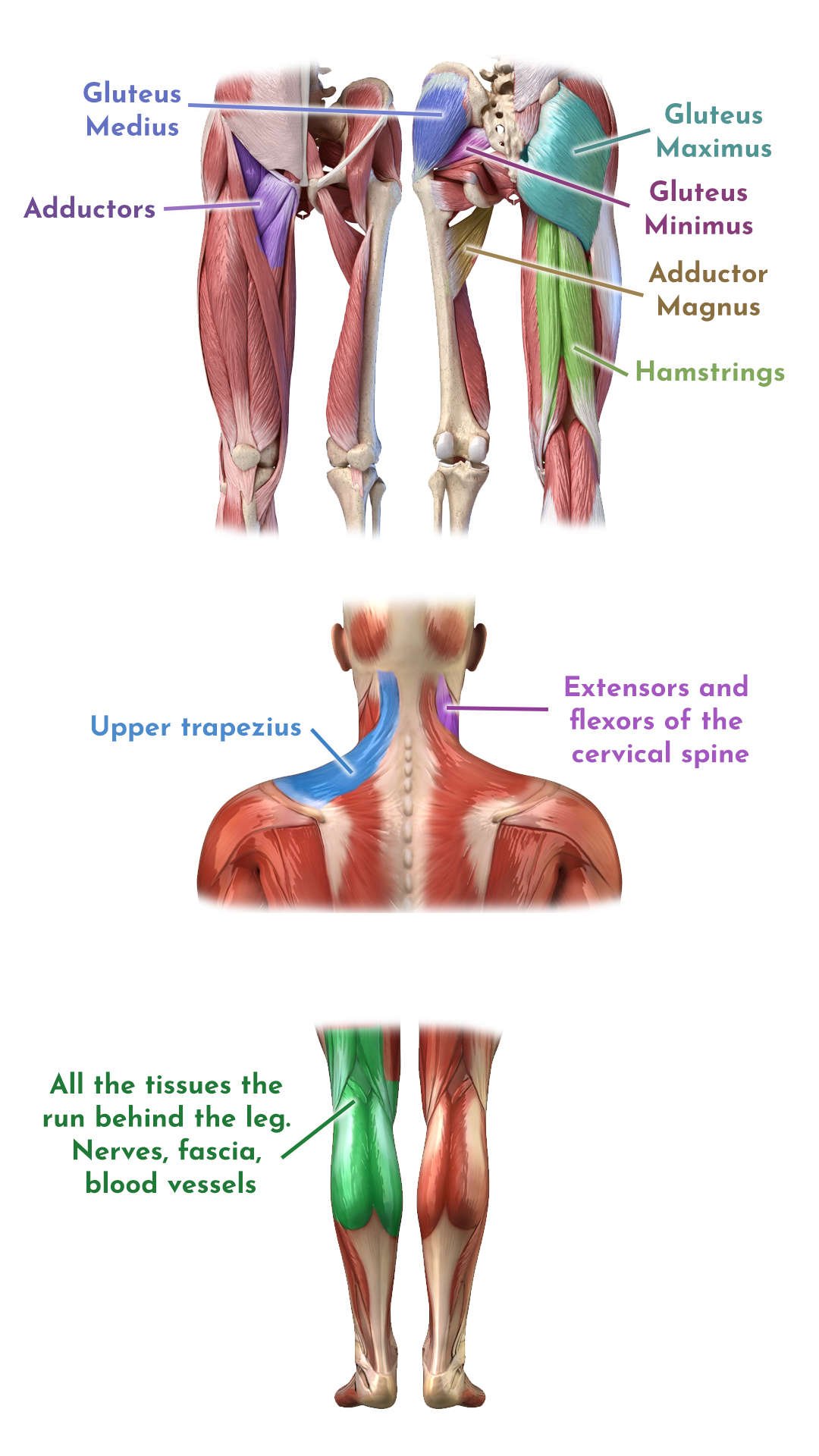
The Forward Bending:
In this pre recorded online on demand video lesson you will learn Zaichik Stretching Techniques for:
- Gluteus Maximus
- Gluteus Medius
- Gluteus Minimus
- The Deep 6 External Rotators
- General Glutes targeting Hip Flexion
- Adduction and Rotation
- Adductor Magnus
- Adductor Longus
- General Hamstrings
- Biceps Femoris
- A special Nerves-Fascia exercise
- Upper Trapezius
- Extensors and Flexors of the Cervical Spine
- You will also get a detailed anatomy and Zaichik Stretching Techniques PDF guide to help you better understand the ZST's and how to improve all postures that require forward bending.
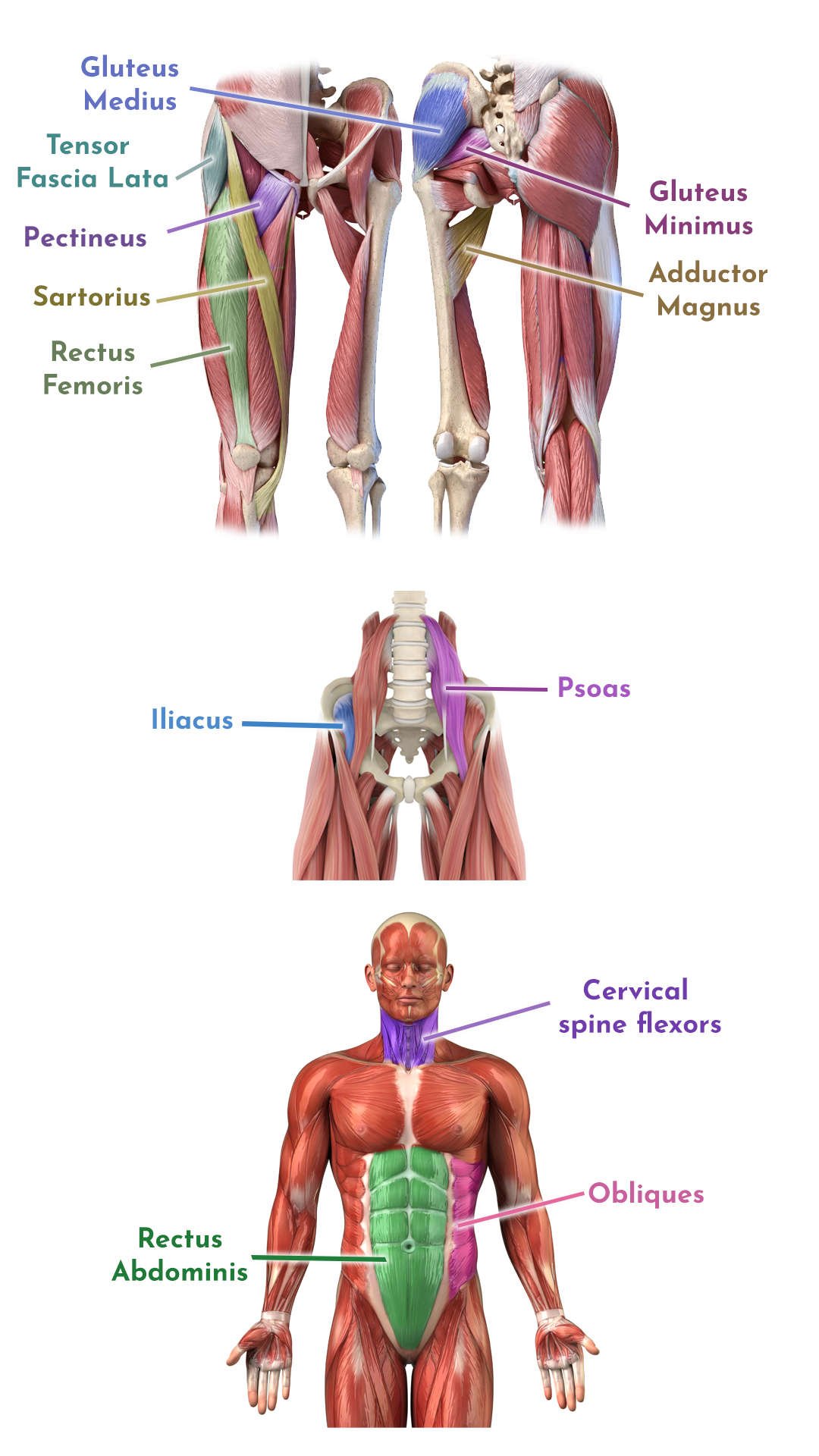
The Back Bending:
In this pre recorded online on demand video lesson you will learn Zaichik Stretching Techniques for:
- Adductor Brevis,
- Adductor Longus
- Adductor Magnus
- Rectus Femoris
- Tensor Fascia Lata
- Pectineus
- Iliacus
- Psoas
- Psoas specific variations
- Gluteus Minimus
- Gluteus Medius
- Sartorius
- Rectus abdominis
- Obliques
- Cervical spine flexors.
- You will also get a detailed anatomy and Zaichik Stretching Techniques PDF guide to help you better understand the ZST's and how to improve all postures that require back bending.
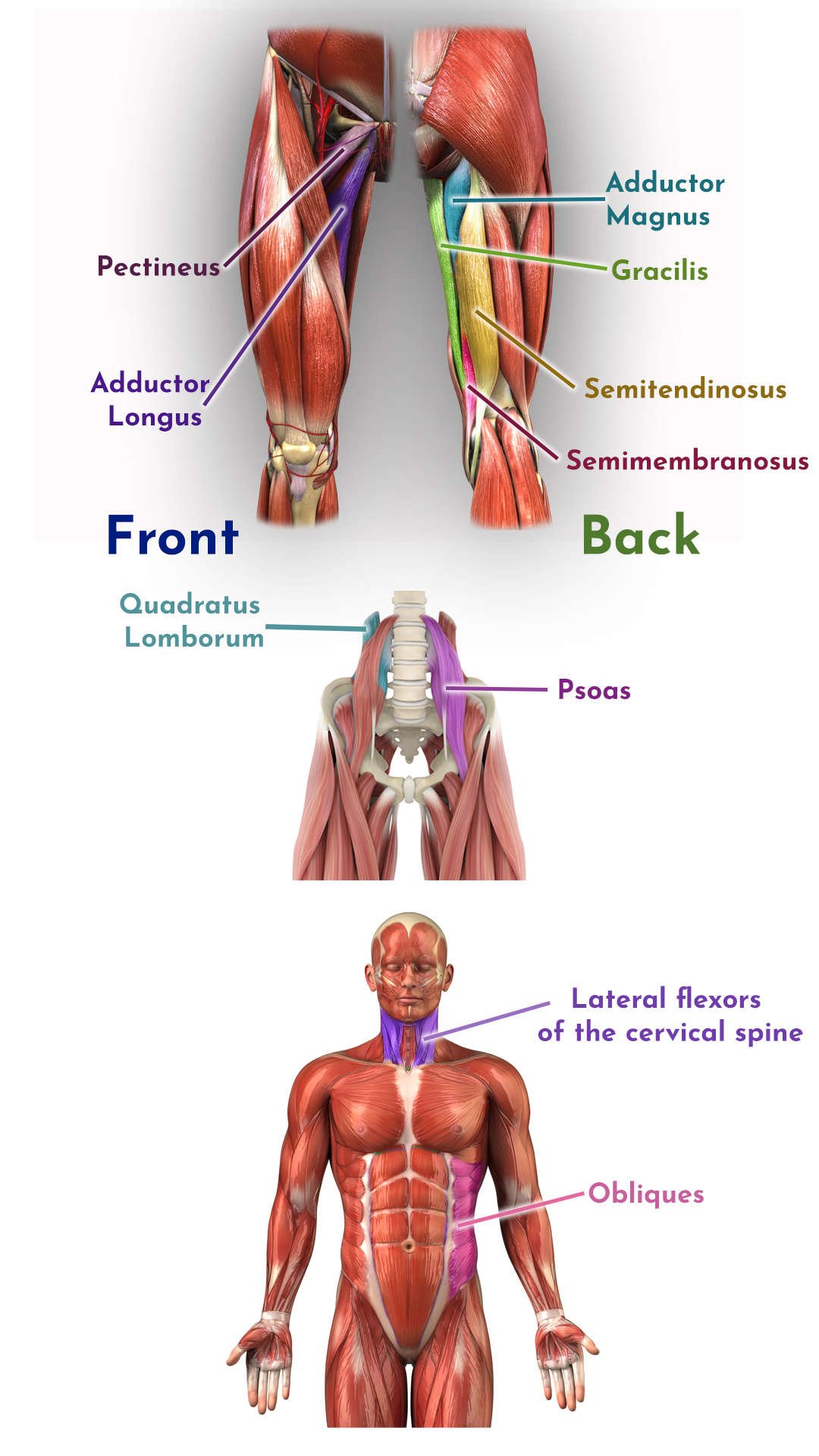
The Lateral Bending:
In this pre recorded online on demand video lesson you will learn Zaichik Stretching Techniques for:
- Obliques
- All spine lateral flexors
- Quadratus Lumborum and spine extensors
- Psoas as a lateral flexor
- Adductors Brevis
- Adductor Longus
- Adductor Magnus
- Adductors in their lateral function
- Gracilis
- Pectineus
- Inner hamstrings (semimembranosus, semitendinosus)
- Lateral flexors of the cervical spine
- You will also get a detailed anatomy and Zaichik Stretching Techniques PDF guide to help you better understand the ZST's and how to improve all postures that require back bending.
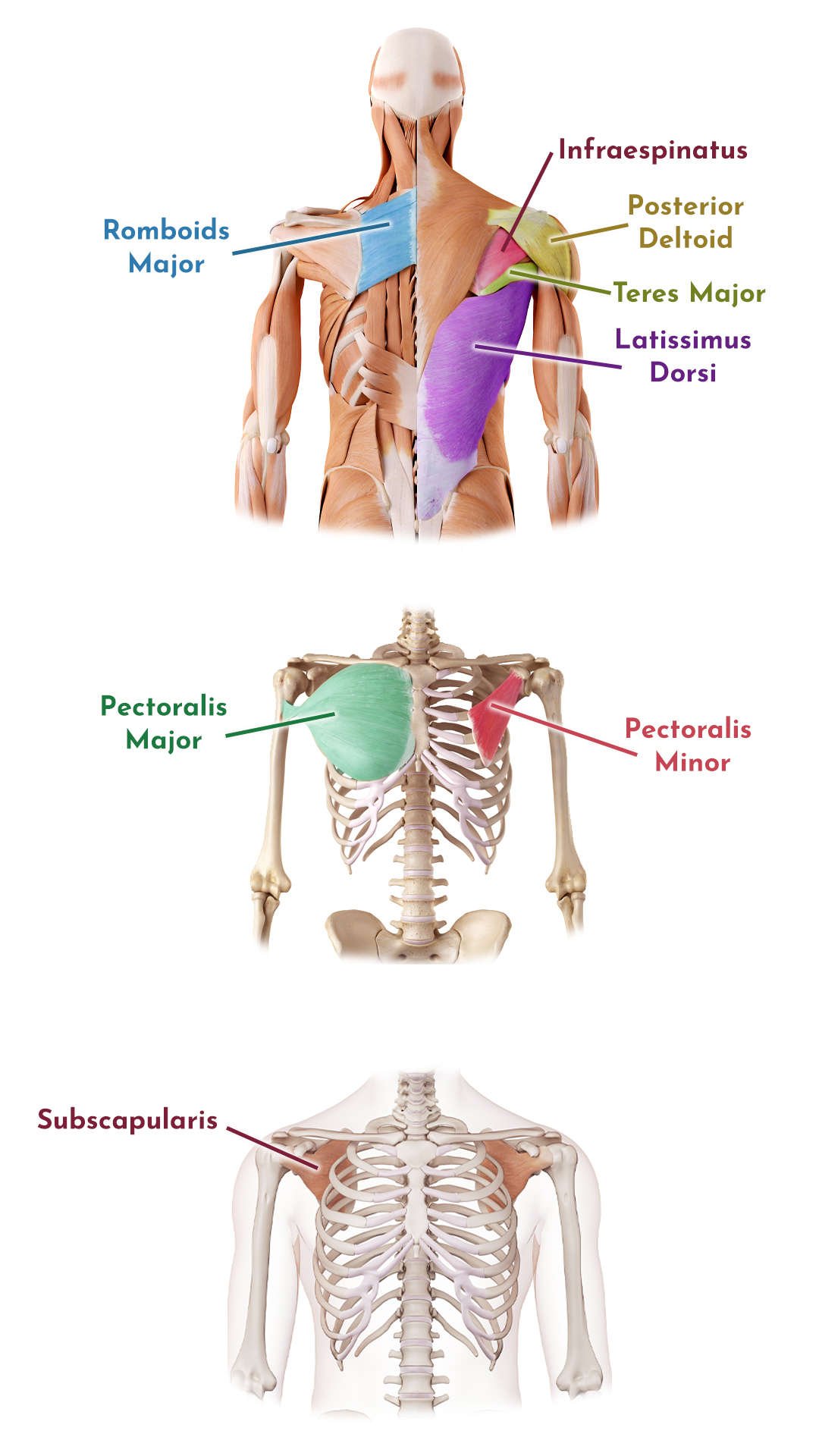
The Overhead Arm Movement:
In this pre recorded online on demand video lesson you will learn Zaichik Stretching Techniques for:
- Improvement of shoulder flexion to the maximum potential
- Rhomboids Major
- Pectoralis Minor
- Infraespinatus
- Teres Minor
- Latissimus Dorsi
- Pectoralis Major
- Subscapularis.
- You will also get a detailed anatomy and Zaichik Stretching Techniques PDF guide to help you better understand the ZST's and how to improve all postures that require overhead arm movement.
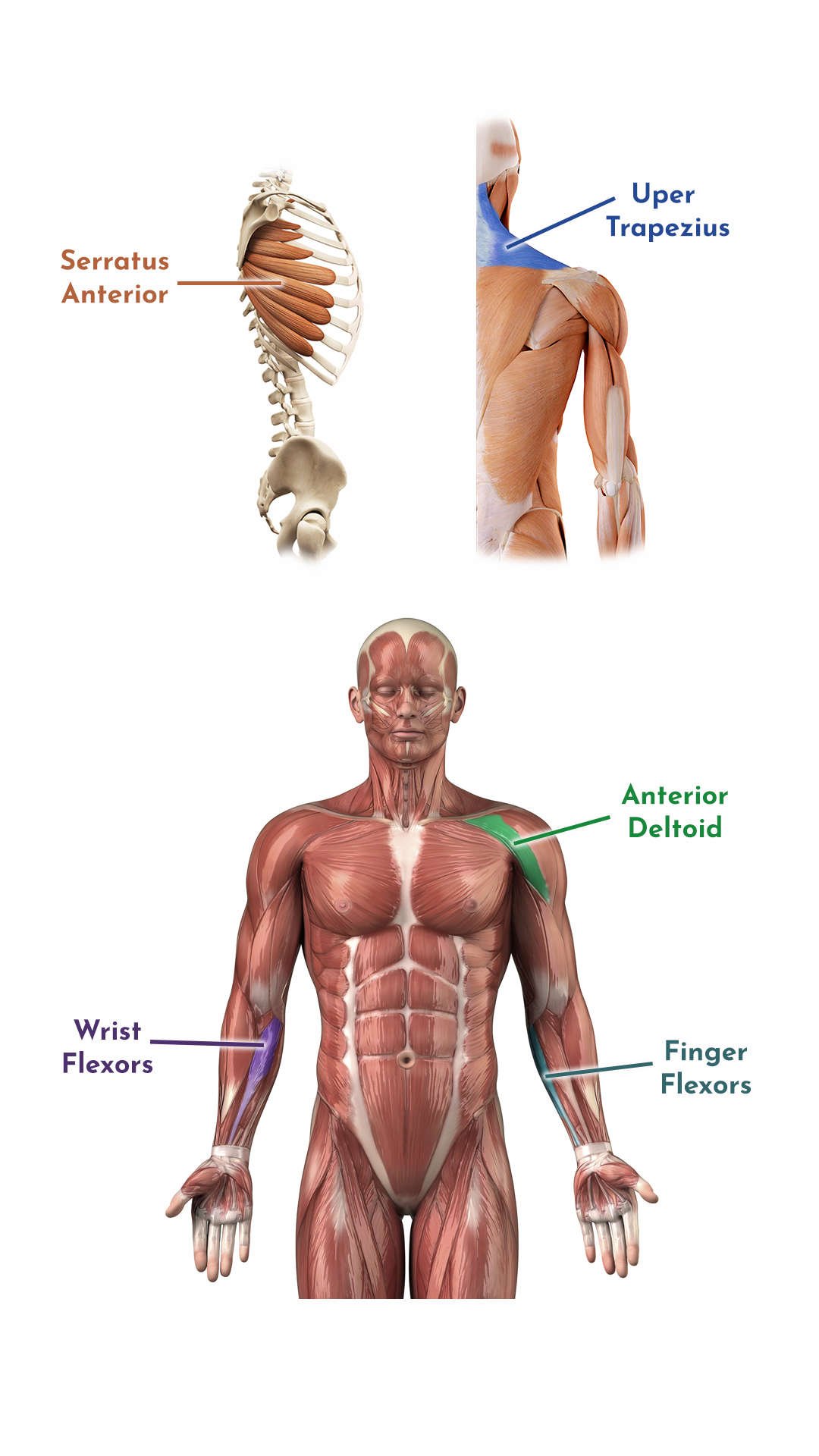
The Shoulder and Wrist Extension:
In this pre recorded online on demand video lesson you will learn Zaichik Stretching Techniques for:
- Improvement of wrist and shoulder extension to the maximum potential
- Serratus Anterior
- Upper Trapezius
- Anterior Deltoid
- Chest Upper Part
- Wrist & Finger Flexors
- You will also get a detailed anatomy and Zaichik Stretching Techniques PDF guide to help you better understand the ZST's and how to improve all postures that require wrist flexibility and bringing your arms back.
Zaichik Stretching Method is unlike anything you've ever tried before!
- Scientifically designed by a world renowned fitness & flexibility expert Paul Zaichik, with over 30 years experience in the field.
- Isolates muscle action one by one (to ensure they are doing their job).
- Takes care of the muscles that are tighter first.
- Allows easier focus, since you are working on one specific area at a time.
- You can do it All on your own! No pushing or bouncing is necessary, not even a partner!
- Remember that phrase 'No Pain - No Gain?', well it doesn't apply to our method. Each stretch is designed to be PAIN-FREE! Thereby eliminating discomfort and allowing you to continue training to achieve faster results.
- Totally safe , since it was designed according to what is natural for your body.
- Gains are permanent and steady. It is very enjoyable to do.
- The approach of our programs is very different from standard stretching approaches. Instead of using other poses, for example such as in Yoga, other Asanas are used to prepare for a stretch, Zaichik Stretching Techniques are used to isolate each muscle being stretched which results in a pain free, fast, easy and safe stretching method.
- Results are visible right away since the stretch reflex is avoided, which means you'll get to show off your flexibility in no time!


What is the difference between the EasyFlexibility’s Zaichik Stretching Techniques and traditional approaches?
Traditional Approach To Getting Flexible:
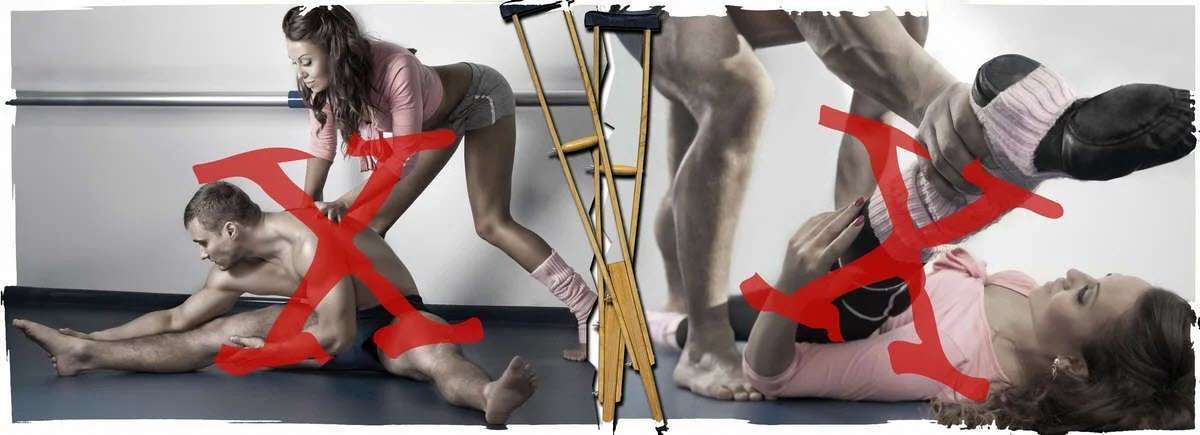
- Many muscles are stretched at the same time.
- One tight muscle fiber will hold everyone back.
- Wider focus is required.
- Great leverage and stamina is needed for complex postures.
- Pain has to be endured to some extent since the pain reflex is encountered.
- Slow to produce gains.
- High risk of injury.
- Most gains are lost overnight, and plateaus are frequent.
- Mostly static and not functional.
ZAICHIK STRETCHING TECHNIQUES IN PRACTICE:
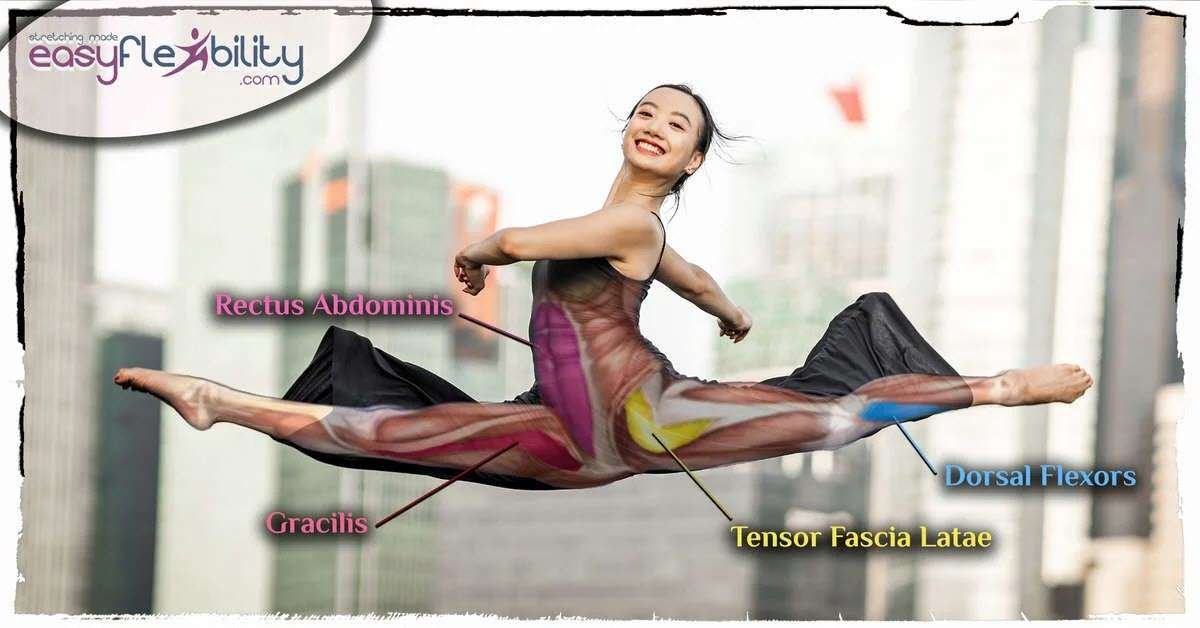
Let's go step by step why Zaichik Stretching Techniques (ZST's) are better for flexibility than other approaches. And you don't have to believe our words. We don't like putting people in a position where they have to trust blindly because we don't do that. We research, get what works, discard the rest. We believe the best way is to give you a chance to try some exercises for yourself, then you will determine how well ZST's work.
These are a few examples. What you see below are some of the ZST's positions we use to do dynamic exercises that target adductor muscles one by one. Understanding the mechanism just by reading is not enough, so we are presenting you with a few exercises for you to try.

#1 - Zaichik Stretching Techniques Isolate Muscle Actions One by One
For example, in the first position shown above which is for the upper adductors, the action these muscles perform are hip flexion and hip adduction, so we have these two actions to take care of, and we do it alternating them, increasing the range on one will "create space" for the other action to move. Let's see how this exercise is done:
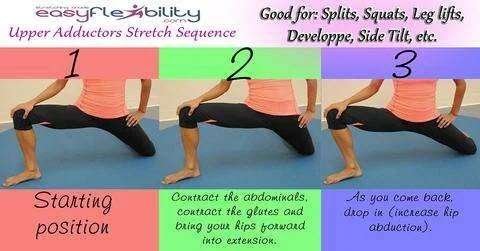
Then step 3 becomes your new starting position, and you can cycle them again till you got as deep as you can for that set. You then rest or do a different exercise, and when you come back to this one you'll be able to go even deeper. Note: Highly Effective - Handle with Care. You don't want to do the splits in one session then be sore for a week (well maybe you want!) So go ahead, do a quick warm up and try it, or just keep reading for now to learn more about the method and other exercises to put a routine together.
#2 - Zaichik Stretching Techniques take care of the muscles that are tighter first
For example, if only one adductor is tight the others won't stretch, so stretching them all at once using a traditional approach won't work. Imagine them as bands all attached closely together. There's one which is tight or not elastic at all. Attempting to stretch all of them at once is not very smart. Why not work on the really tight one, then move forward and work on the rest?
Now try this other exercise and feel how it works! This is an exercise targeting the adductor magnus muscle, one of the muscles you need to work on to improve your splits (among other skills):
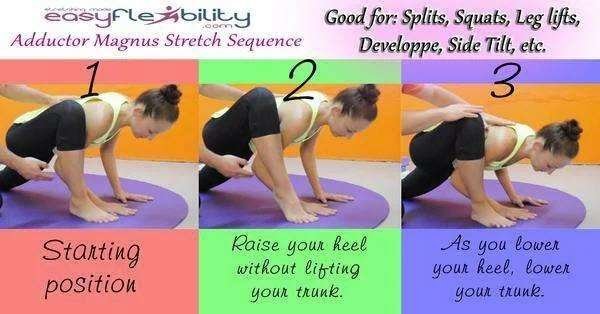
Same as before, step 3 becomes your new starting position! Keep repeating the sequence and get deeper and deeper without pain! It is ok to do from 5 to 10 repetitions, or just keep going for a few more if it simply feels great.
Feel free to do this cycle of two exercises after a quick warm up, do a few rounds, don’t do more than 5 reps per set to start, don’t rush, put your mind to it while you do it and watch how your body reacts, and most importantly, enjoy the results! Train safe and smart.
How did it go?
As you've seen we did not hold stretches for any amount of time. The method you are about to learn does not make you hold positions waiting for something magical to happen, you actually do something in order to get more flexible, not just wait for a miracle on a stretch that is straining you, putting you to sleep or injuring you or on the best of the cases not producing any effect.
This way of going deeper into a stretch using particular moves is called the Target and Leverage system, and this is actually the key difference with Zaichik Stretching and other methods, and this is mainly why it is so effective. It takes advantage of the fact that no single muscle performs one action, and it uses those actions one against the other in order to "create space" for the joint, thus automatically increasing range of motion.
Put the two exercises together in a cycle
The most effective way to combine the exercises is putting related ones together in a cycle. So first you will do an Adductor Brevis exercise, then an Adductor Magnus one, then an Adductor Gracilis and a Pectineus exercise, then you will start over. Every cycle you will feel that you go deeper and deeper on every position, so for this reason doing just one set of a few related exercises usually works better than just picking one exercise and repeating it by itself many times.
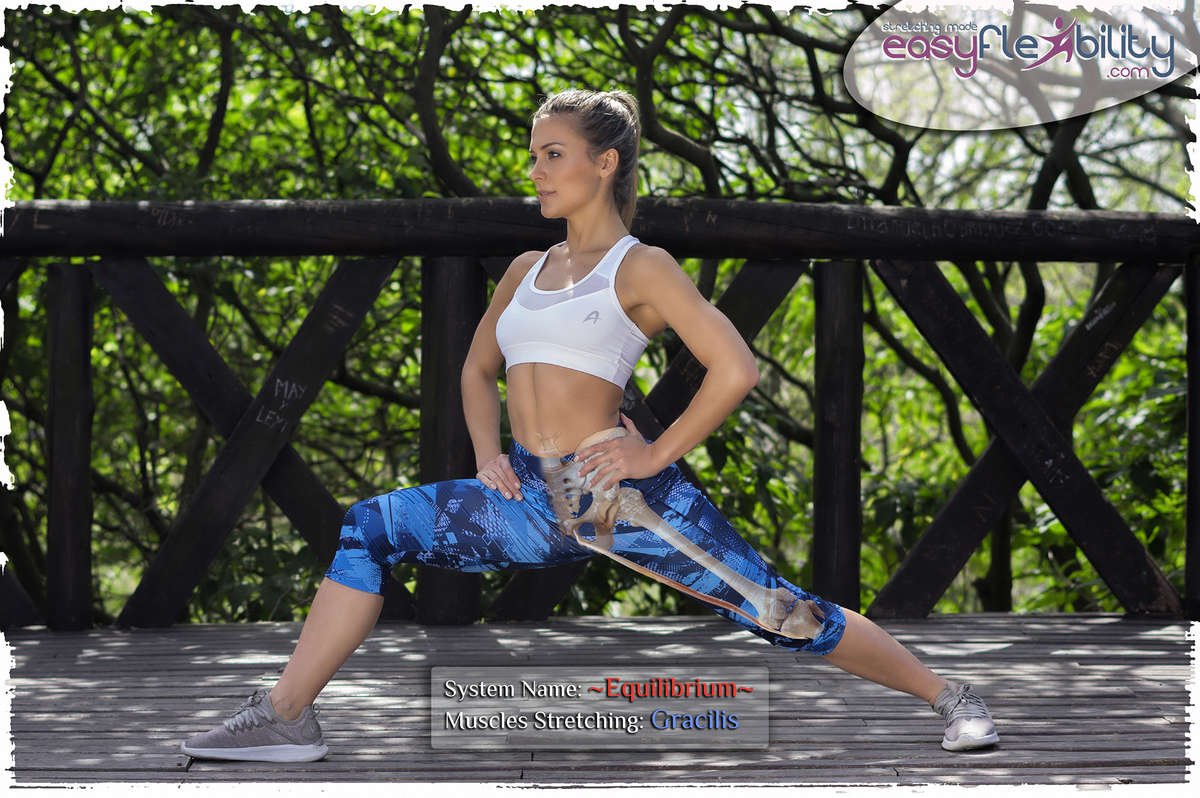
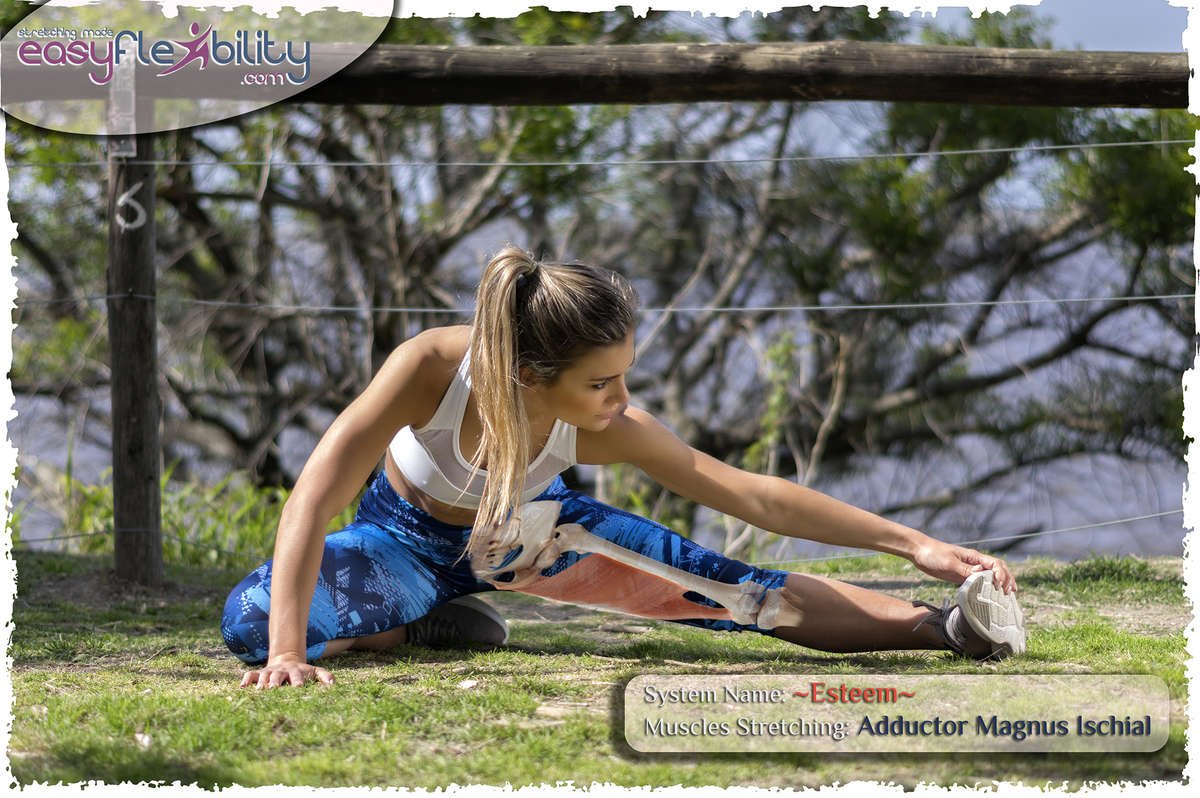
More Advantages of the Zaichik Stretching Method
#3 - Allows easier focus since you are working on one specific area at a time. It is just easier to concentrate, trying to pinpoint exactly where you feel the stretch or tension while you are doing the ZS exercise. This is a great way to develop awareness and know your body in full.
#4 - No pushing or bouncing is necessary, not even a partner. This is obvious now, as you have learned we don't need to push, we use the smart way of working with the muscle actions, alternating them in a Target and Leverage system.
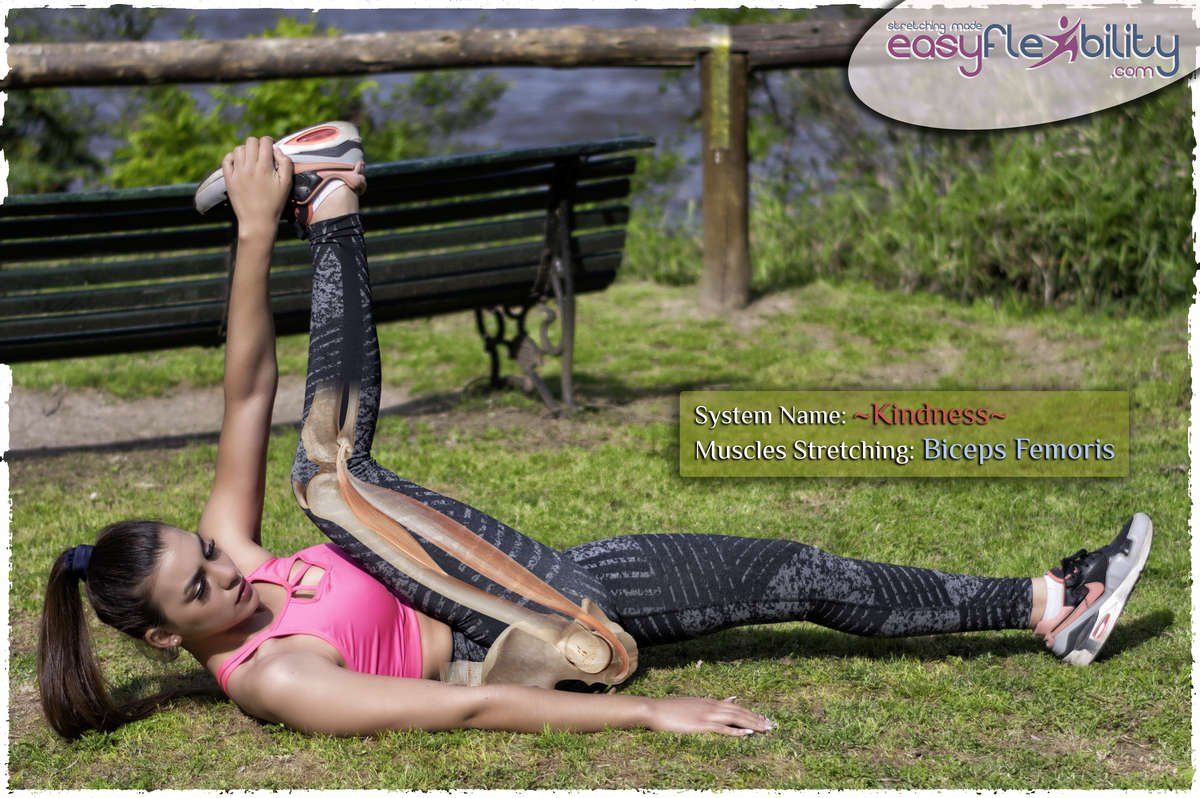
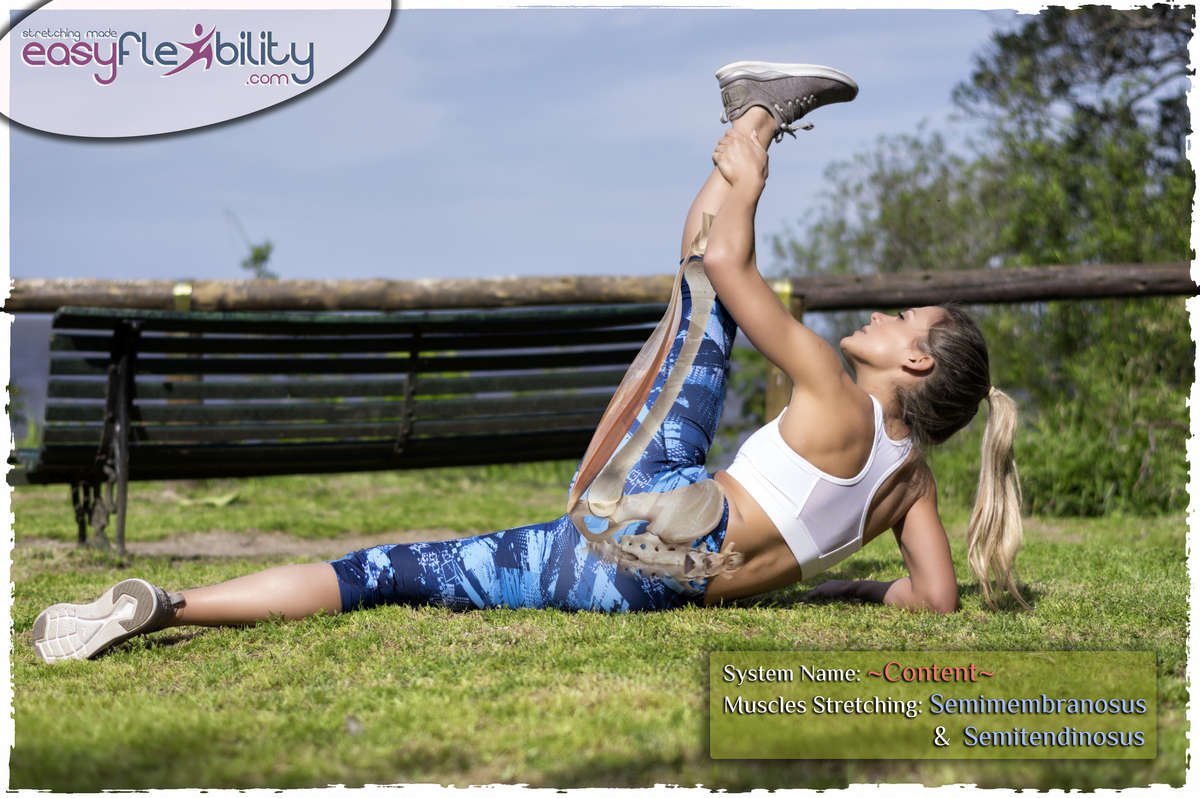
The Target and Leverage System of the Zaichik Stretching Techniques
To go a bit deeper into ZST unique (and key) aspect without becoming very technical, the basic ZST modality implies that one move is the "helper", this is your Leverage, and the other move is your Target, the direction where you want to get deeper.
The helper or Leverage will move back and forth, the Target will always go deeper. This is something to keep in mind so the exercise is the most effective it can be. Always keep your target direction in mind, and move your leverage carefully without retrieving or loosing the range you gain with each repetition.
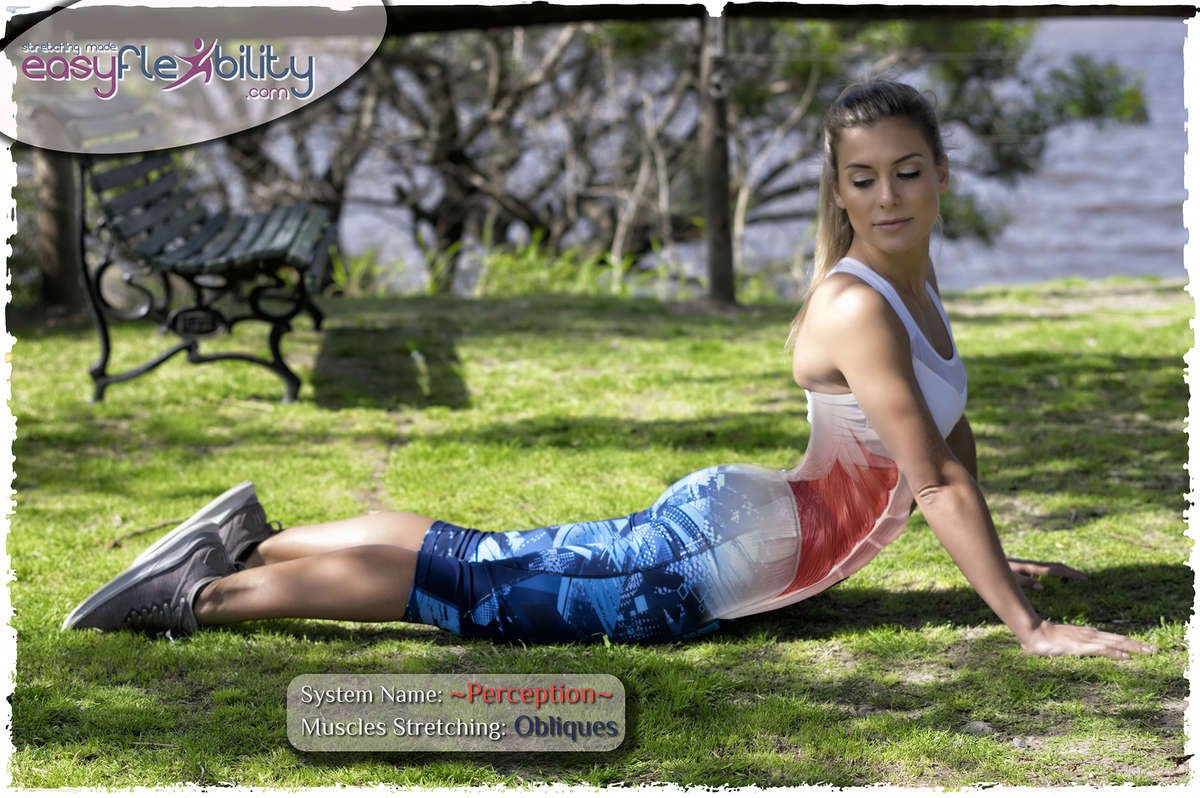
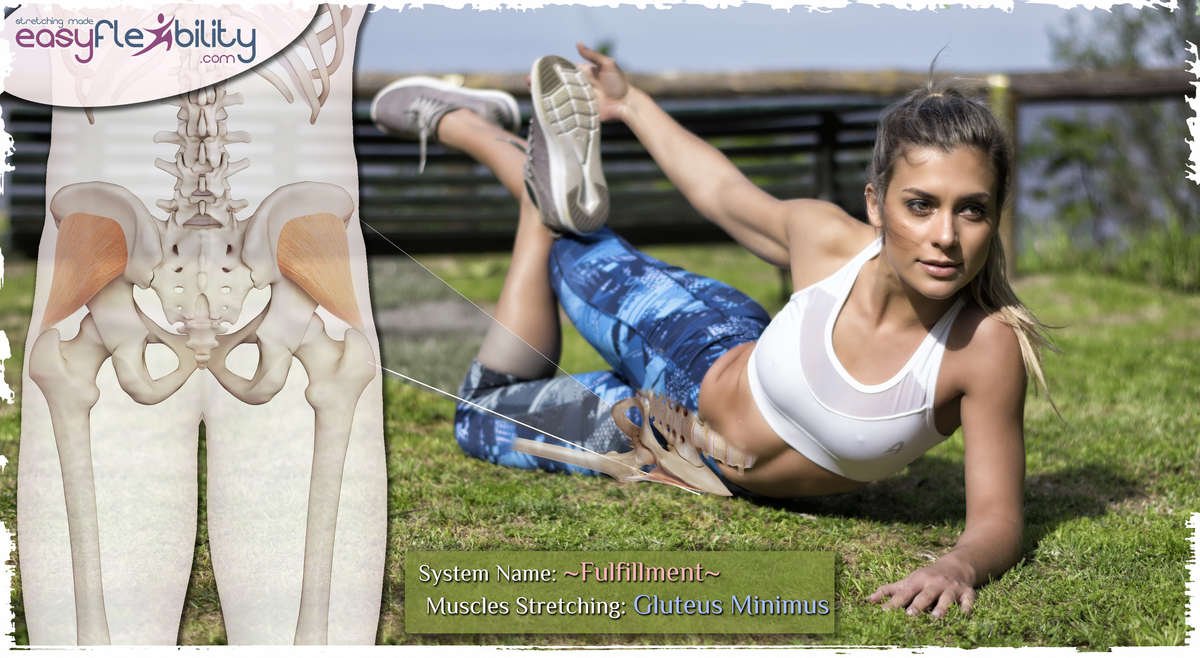
More Advantages of the Zaichik Stretching Techniques
#5 - Pain is not present at all. Since we are not pushing, or trying to relax over a tensed up muscle in a "relaxed stretch" (how ironic!), or tensing up further to fight the reflex as it is done in a PNF approach, the myotatic reflex which is encountered when one attempts to stretch deeper than what the muscle is ready for does not activate. It does not need to, since ZST is a natural approach, the stretch reflex does not need to tense up our muscle to protect us from our own "not-smartness" to put it nicely. Using ZST, by the time the Target move is going deeper, the Leverage/Helper will have created the space.
#6- Results are visible right away since the stretch reflex is avoided. You just need to try the two exercises and see by yourself, it is not exaggerated at all to say you see progress right away.
Let's do an upper body exercise!
This is a ZST Stretch that will work primarily on Latissimus Dorsi and Pectoralis Major. Rarely anyone knows how to isolate these muscles properly. Look at the picture carefully and read the explanation below.
Benefits: Improves Cowface Pose, Headstand and Handstands, Downward Facing Dog, Wheels and Back bends and any posture where upper back, chest and shoulders must be flexible.
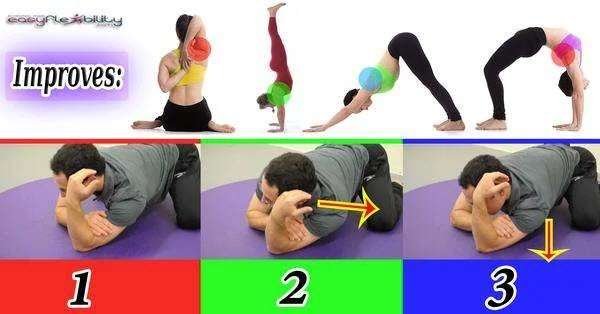
1- Start as deep as you can, armpit as close to the floor as it is comfortable for you.
2- Apply external rotation to your shoulder, using your head against your wrist to slightly push out.
3- As you return to the starting position drop your arm pit into the floor.
And then step 3 becomes your new starting position! Keep going with the exercise to go deeper and deeper into the stretch.
In this case your Target action is dropping your armpit into the floor, that is, increasing shoulder flexion, which will go deeper and deeper with every repetition. On the other hand, your Leverage or "helper" move is moving your arm laterally outwards, applying shoulder external rotation and then retreating it back. At the same time you are retreating the Leverage you will notice that you can go deeper into your Target without any effort. This is the magic of EasyFlexibility's Zaichik Stretching.
Zaichik Stretching Techniques offer the following benefits:
#7 - Totally safe, since it was designed according to what is natural for the body. As it was explained above, while doing a ZS exercise your body does not need to activate the stretch reflex to protect you.
#8 - Gains are permanent and steady. When your nervous system detects repeatedly that you are able to move while in a stretched position, that you are getting stronger in that position and are you able to come back from it without feeling pain, it will register your new ranges of motion as permanent, thus you keep whatever progress you got during a training session as the starting point for your next one.
#9 - It is very enjoyable to do, and feels more like a workout. EasyFlexibility's Zaichik Stretching is good for all ages, and training levels, it can be applied to develop a specific sport skill or just to get flexible and feel lighter and more agile.
10# - It can be done in dynamic, static, active, relaxed, strength modalities and combinations of all, producing functional flexibility and catering for every type of body. It adapts to any sort of background. if you are a dancer you'd do the ZS exercises mostly in a dynamic way, adding antagonists short range strength training to develop active flexibility; if you are a martial artist you will take advantage of the strength modality for agonists muscles; if you practice yoga asanas, you will adopt a relaxed modality where you still work in ZS positions but the alternation of the Target - Leverage is practised less dynamically, and so on. The combinations are endless.
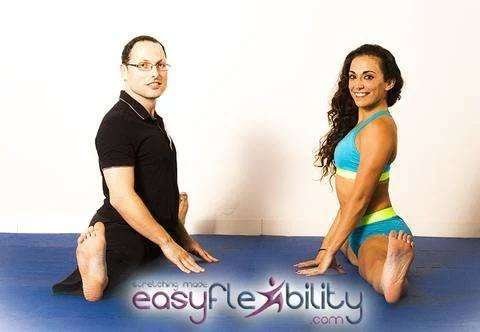
Zaichik Stretching Techniques are different!
We understand the method is very different to what you know, and it is easy to understand when you practice, maybe not so much by reading technical explanations, that's why we decided to walk you through as we just did.
Technical explanations are good too, the more you know about what you are doing the better you will absorb it and the more beneficial it will be. We hope you enjoyed the reading and practice.
Technical explanations are good too, the more you know about what you are doing the better you will absorb it and the more beneficial it will be. We hope you enjoyed the reading and practice.

Where to start!
Where to start will depend on your goals and level. If you can reach your toes with your wrists having legs straight without feeling much of a stretch, you are good to start the Front & Side Splits Training Program. If you need more functional flexibility for Dance, the Dance Combo is a better choice. If you can't reach your toes you will benefit greatly starting with a Beginners Hamstrings program. If you want to learn the complete method to be able to create your own routines that will benefit you and your students then you can enroll in the Certification course.
You can get Certified:
The system includes over dozens of exercises for your whole body, as well as many variations for each exercise. What this means is that, there's absolutely no way you will escape becoming flexible. There is just no more excuses. You can enroll in the Online Certification Course to learn how to use the Zaichik Stretching Method to benefit yourself and your students.
Here's what is included with the EasyFlexibility Training Certification Course:
Gain access to a full and detailed Kinesiological explanation for every muscle in the human body. All of our Zaichik Stretching techniques are specific to individual muscles, focusing on their primary actions.
We bring you the most complete seminar of the full kinesiology of each muscle that consists of a 2 semester University course.
- Detailed demonstration and explanation of each Zaichik Stretching Technique: A certified instructor will show all techniques on himself and his students for a simple structured layout of the content of the program. This will help you gain the necessary insight into each Zaichik Stretching exercise and the best way it’s done. An added benefit is the information given on the reasons behind every move, and best examples of performing it.
- Complete 40 page PDF summary with pictures, explanations and cues: A PDF sheet detailing everything covered in the seminar allows for a quick reference to each technique. Gain access to proper positioning, and detailed explanations about the Target - Leverage mechanism for each exercise without needing to refer back to the videos.
- 2 FREE PROGRAMS of your choice: Your choice of two digital videos is an added bonus to obtaining this certification. It allows for a better idea of how Zaichik Stretching techniques are combined to form specific routines.
- Access to a Private Support Forum: Believe it or not – this is one of the most important elements of a program as it forms the right attitude towards the program. Upon registration for the course you gain an access to the private support forum, where you have a 24-hour active community to share your experience with, ask questions and seek advice.
This seminar is applicable to any sport or physical activity with lessons arranged along the basic positions commonly used to group muscle actions, thus the lessons are devided into exercises to improve:
- Back bending.
- Forward bending.
- Lateral bending.
- Overhead arm movement (shoulder flexion).
- Shouder and wrist extension.
Plus a lesson on methodology, science of Zaichik Stretching, and possible variations and modalities to each exercise.

PLUS Exciting New Stretch180 App Features!
The biggest features that we've added is for EasyFlexibility Instructors.
Once you are an EasyFlexibility Certified Instructor you will find this feature to be incredibly valuable. This feature alone will up your student retention, help you stay organized and keep track of your students progress!
This feature allows you to keep a record of all of your clients picture progress with dates, measurements, their contact info, and what's even more important the ability to send this progress to your clients anyway that you choose to do so. You can send them an email to keep them engaged with the training, or text message to their phones etc.,
Once you are an EasyFlexibility Certified Instructor you will find this feature to be incredibly valuable. This feature alone will up your student retention, help you stay organized and keep track of your students progress!
This feature allows you to keep a record of all of your clients picture progress with dates, measurements, their contact info, and what's even more important the ability to send this progress to your clients anyway that you choose to do so. You can send them an email to keep them engaged with the training, or text message to their phones etc.,
After purchasing our Certification course, If you are interested in having this feature activated for you please send an email to info@easyflexibility.com with a request. (This feature is not automatic and will need to be manually turned on for you, so be sure to let us know if you want to have access to this feature).
And now for the fun part, here are a couple of screen shots of what this new feature looks like:
And now for the fun part, here are a couple of screen shots of what this new feature looks like:
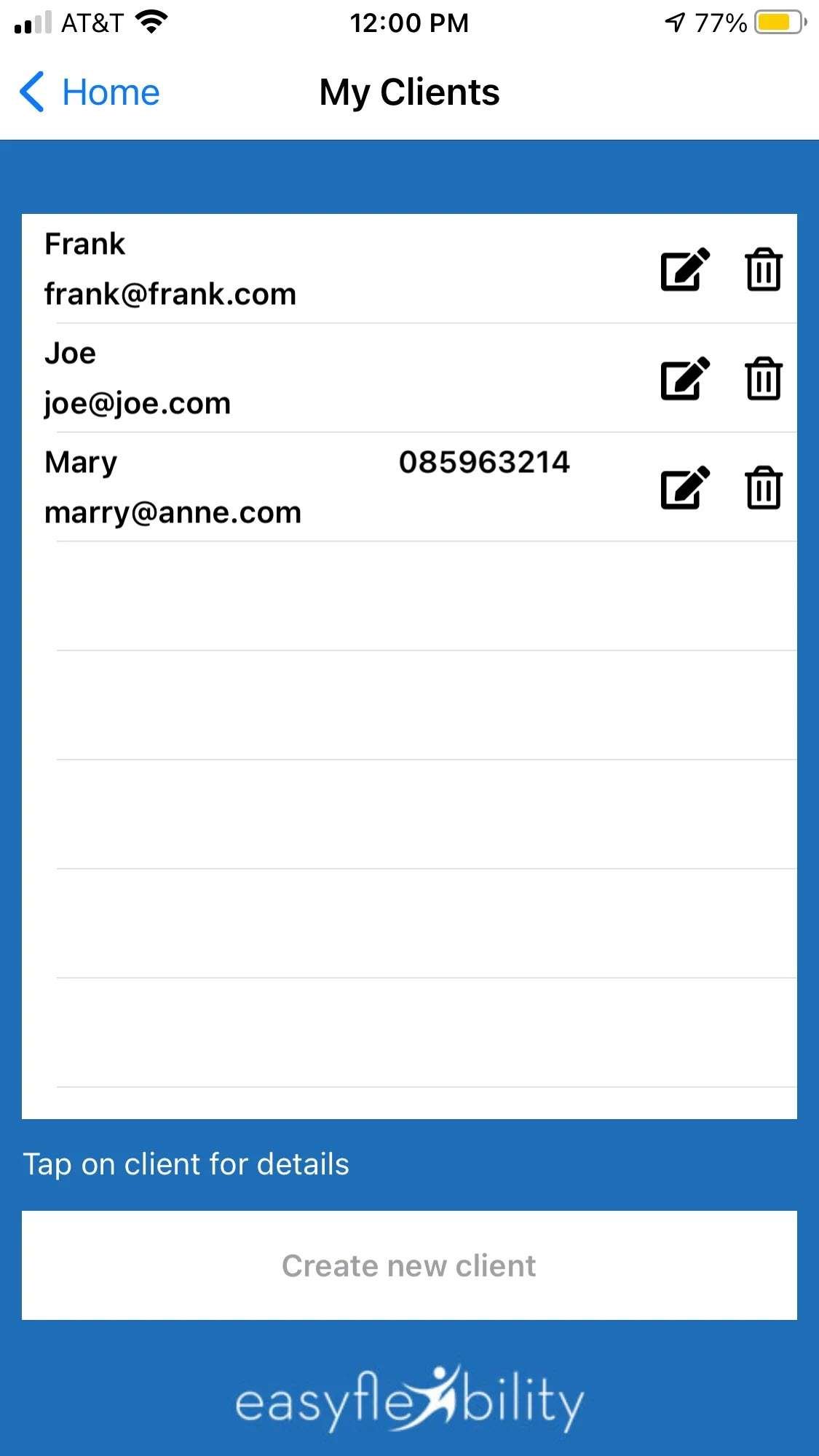
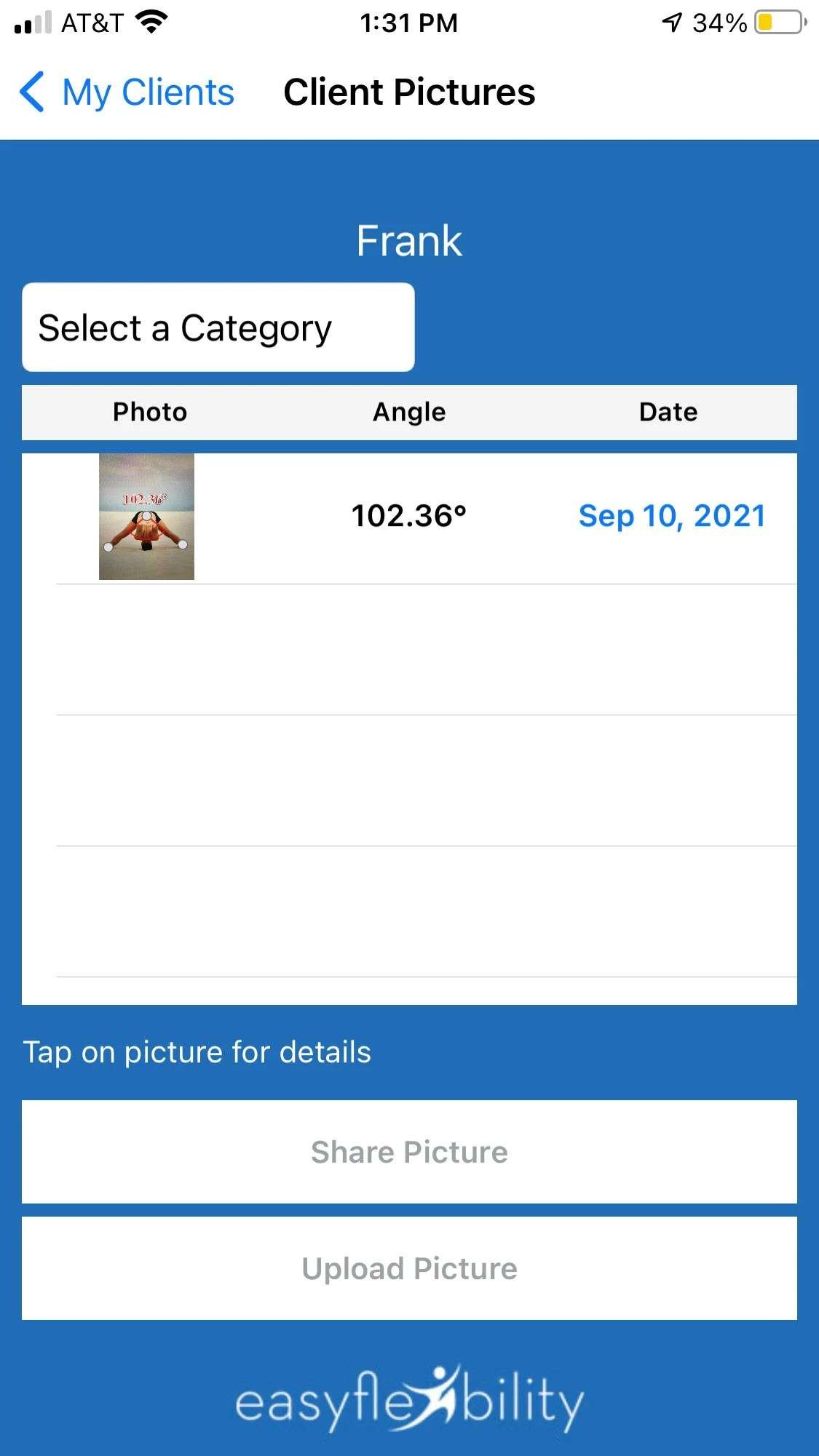
To register for this course click on the BUY NOW BUTTON below to get started!
Please note: that these are not downloadable programs, nor are these programs available in DVD format. All our programs are Pre Recorded Online On Demand Video Strength & Flexibility Training Programs. Once you place your order, you will receive an email containing your login information on how to login to your very own online library which will contain all the programs that you purchase from us. This is an online library, which you can access any time that you wish from any device, phone, computer, ipad. There is no time limit for you to view your programs, you get to keep them in your library indefinitely, and access them any time, anywhere, and for as long as you want to!
YOU MAY ALSO BE INTERESTED IN:
Don’t see what you want? Need help selecting a program? Want to buy more than one program? We can put together a one step checkout for you with all the programs that you wish to buy so you don't need to keep clicking the buy now button over and over again and can checkout one time with all the programs you need.
We’re here for you! Just send us an email to info@easyflexibility.com describing your goals and we will help select the right program for you!
We’re here for you! Just send us an email to info@easyflexibility.com describing your goals and we will help select the right program for you!

Share this post
2 comments

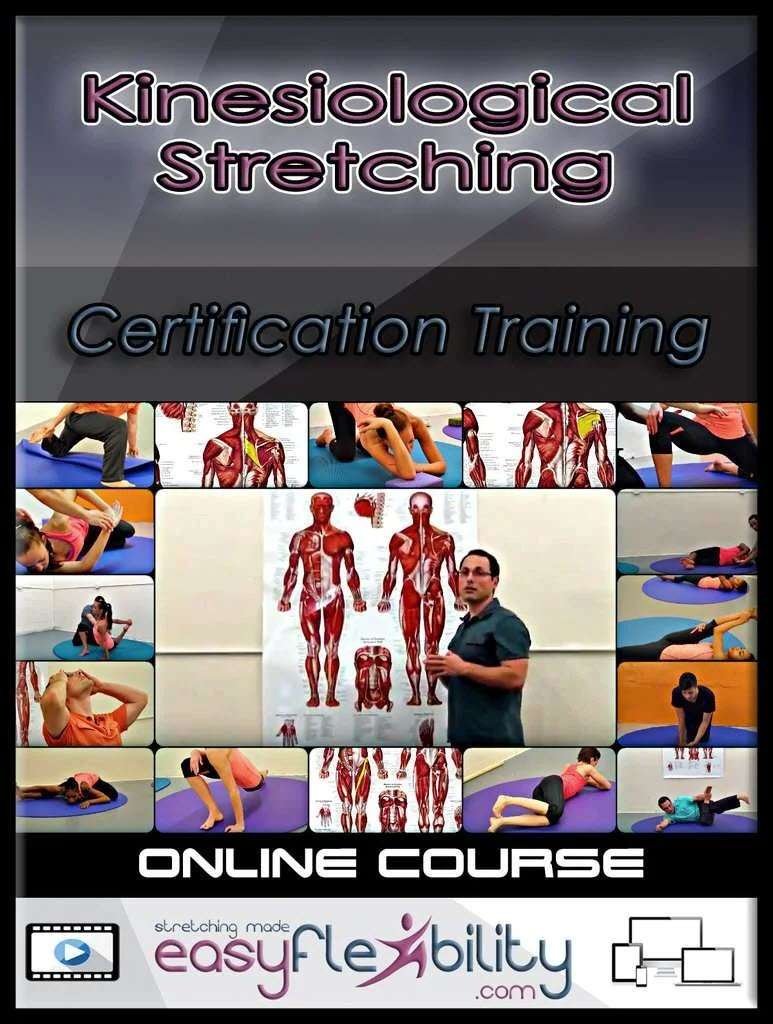





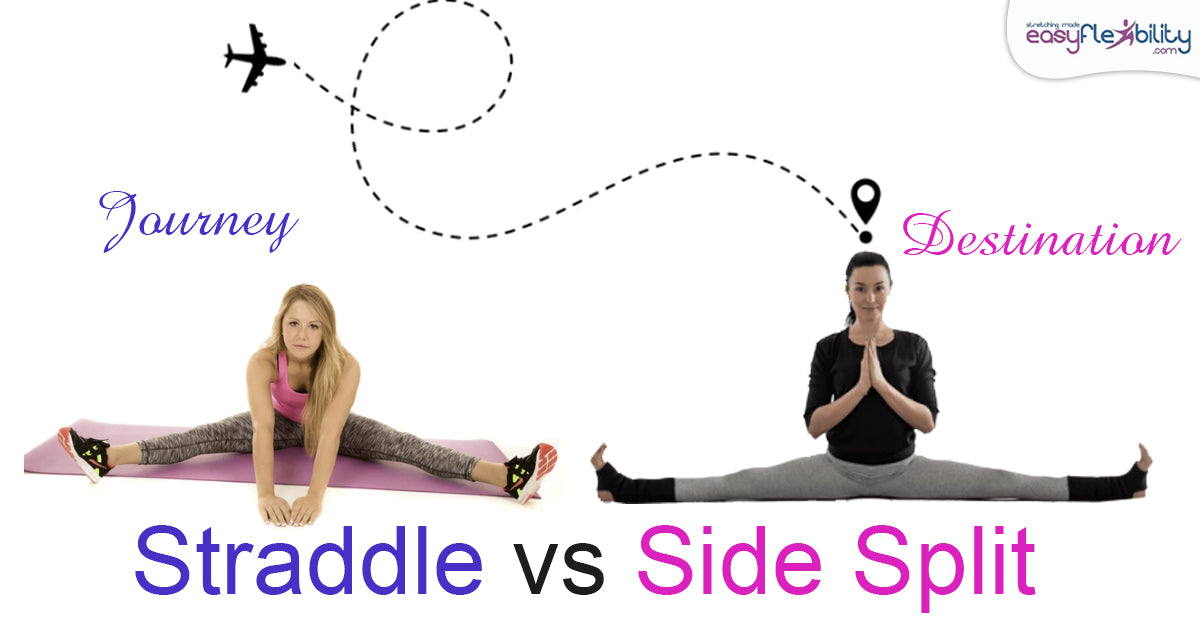
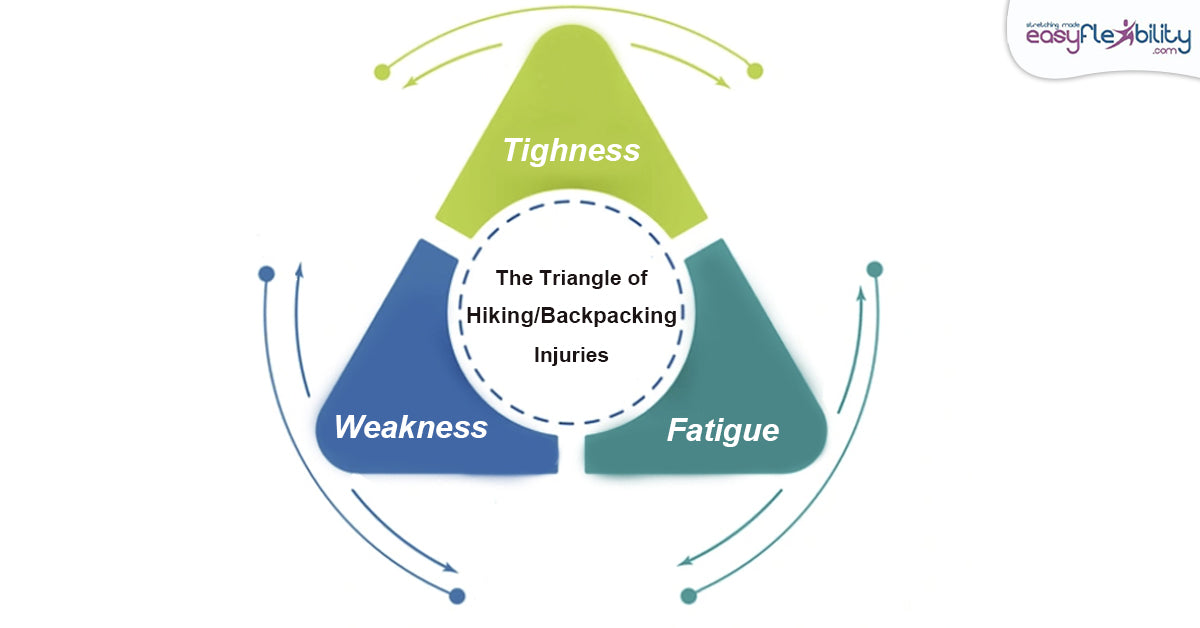
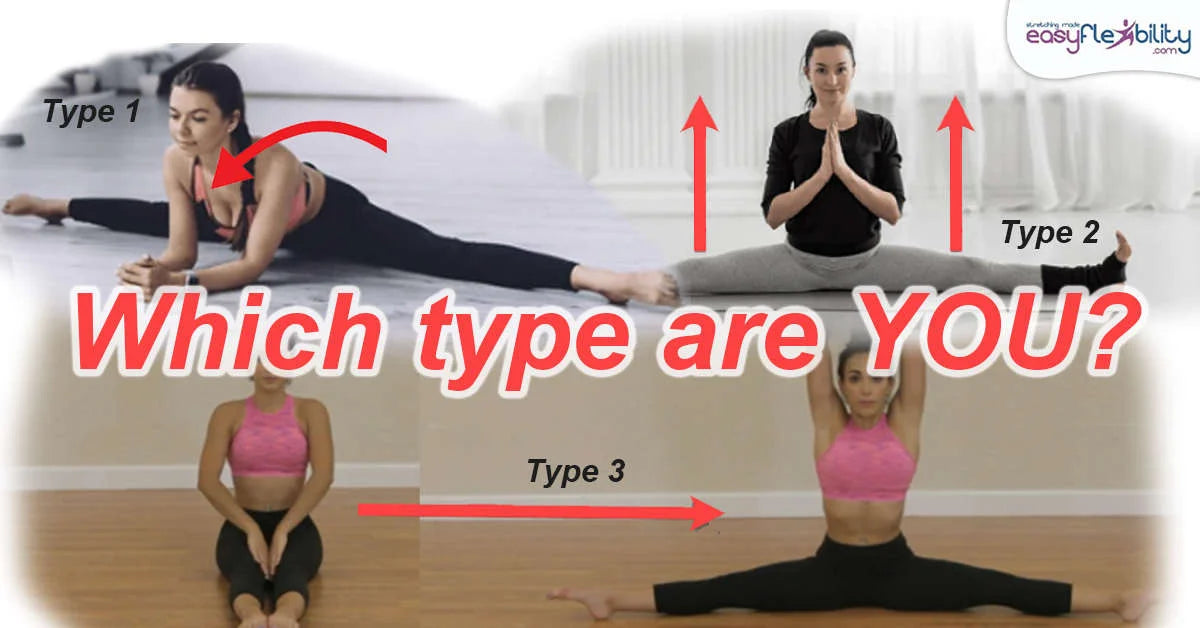
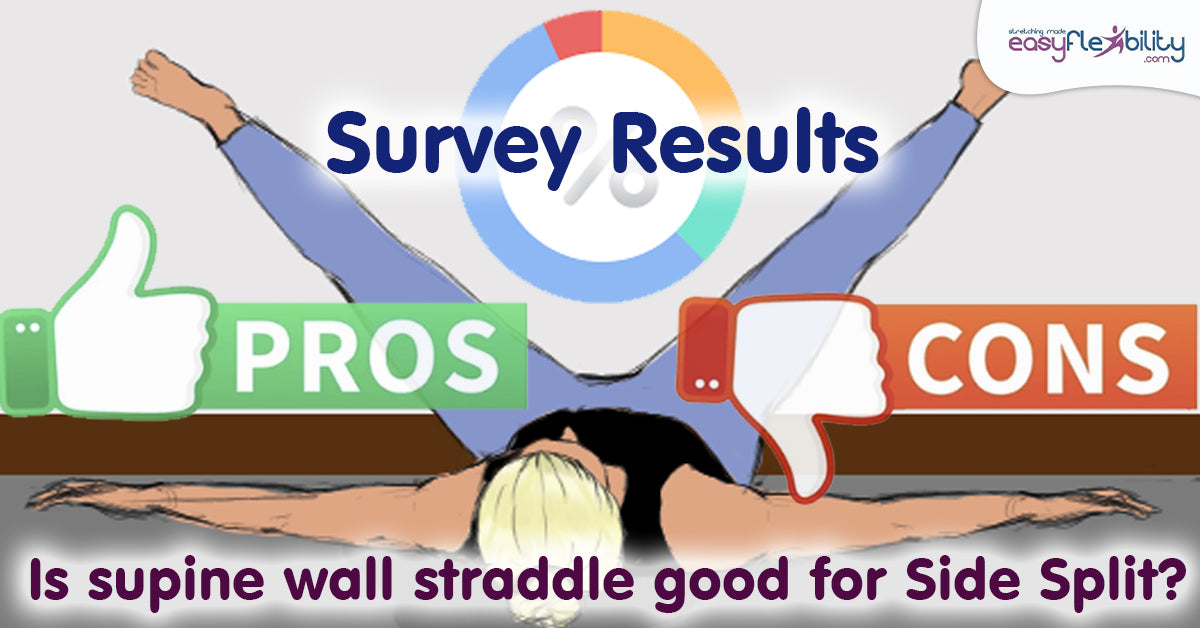
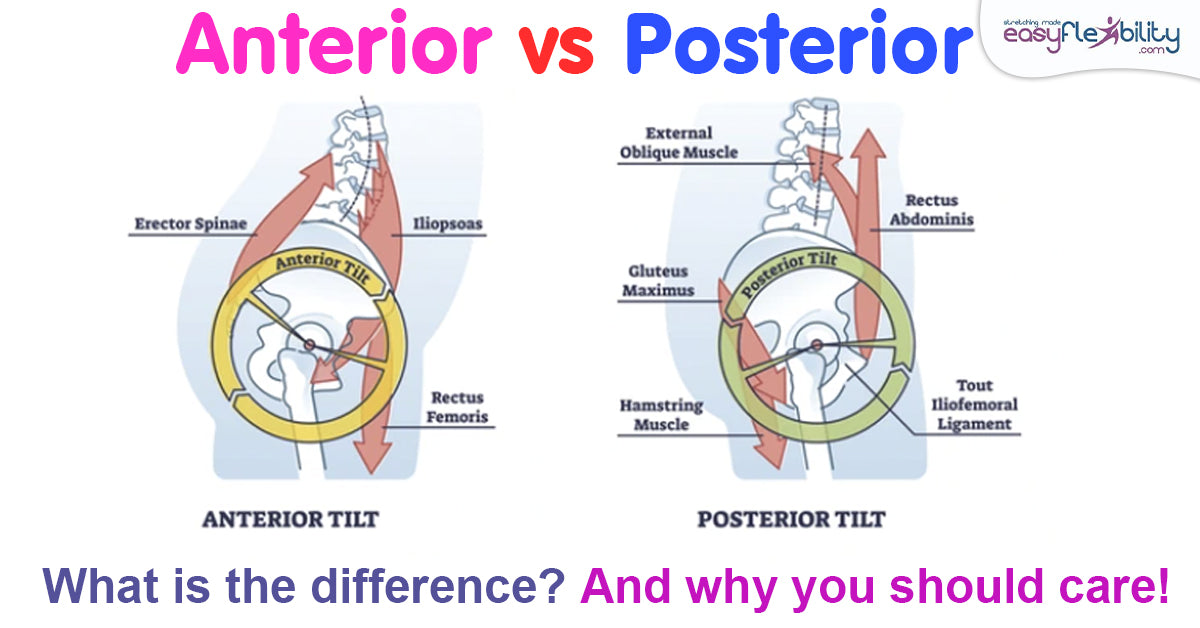
Hi Head. What may be “wrong” is:
1- “on and off”, you should be consistent.
2- you are not using a good method.
Once you got a good method work on it consistently for at least 6 months. It is normal to progress 5 to 10 degrees per month, but you have to meet the two points:
1- be consistent
2- use a good method.
I have been working on and off 10 years now to get splits but I think something might be wrong with my nervous system
Is this the only thing that could be wrong